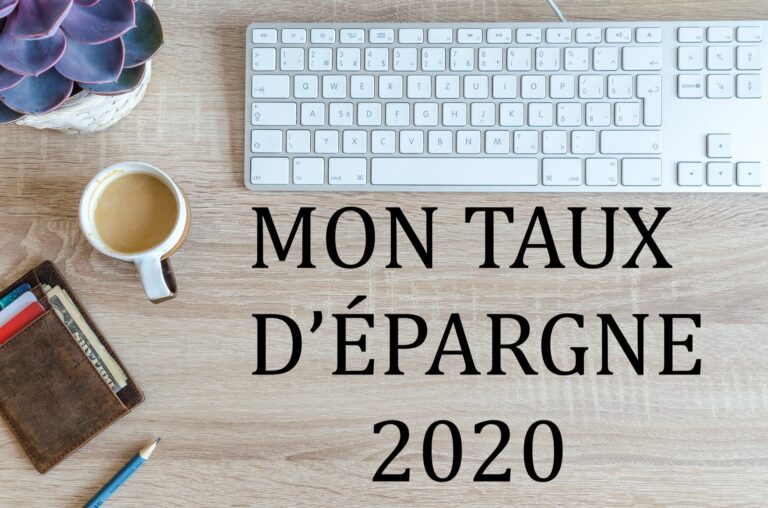Saving Habits – part 3
Welcome to the FIREHabit series where you’ll find some actionable tips on how to reach Financial Independence.
In Saving Habits – part 2, you’ll find some useful tips about how to save on Housing, transportation and groceries. Check it out!!!
Good credit habits:
Our credit health has a huge impact on our savings strategy. Considering more than 70% of Canadian families carry a form of debt nowadays, that means that more than two-thirds of Canadian households are paying interest fees on a consistent basis. Lowering these fees can help us save big over time. We all know the impact of our credit score on the interest rate once we apply for any form of credit. So let’s review how we can influence our credit score by implementing some healthy habits.
- Your payment history is the biggest part considered when a creditor evaluates your credit score. It represents 35% of the global score. This is related to all late or missed payments on your credit cards, phone bills and other accounts. Everythings is screened and reported to the credit bureaus. So if you are not paying your bills on time, every time, consider auto payments. This will bring you peace of mind. And if you have trouble paying a bill or you plan on disputing it, you need to immediately contact your lender to find an arrangement. Never skip a payment.
- The second variable in terms of importance is what they call in the credit jargon: «Credit utilization ratio«. It weighs as much as 30% on the global credit score. This is basically how much credit you’re using overall. The less you use, the better it is. the ideal scenario is to not use more than 30% of your credit limit. This indicates to the creditor that you’re not struggling with your debts and you can afford to pay back what you borrowed. So if you think that you’re credit card balance is often exceeding 30% of your credit limit, you should consider increasing this latter.
- The third variable is the Credit History. It represents 15% of the global credit score. There is no specific hack for this one as it is based on the time you have been exposed to credit. The only thing that you could do to help your credit history is to avoid applying for credit sparingly. Applying for multiple credit accounts within a short time period may impact your credit score negatively. We will cover this particular point in detail in a future article about travel hacking.
- My last advice on this subject is to check your credit reports regularly. Meaning approximately twice a year. Nowadays, almost all financial institutions offer this feature for free through your online web portal.
Lifestyle habits
It is estimated that the average adult makes around 35000 conscious decisions per day. Some of them could lead to good or bad consequences, but all of them lead to a path that sharpens our personality, the way we interact with our peers and the way we build our future. Let’s pause here for a second and consider the power that we have on ourselves. consider being intentional on something that you truly desire and leverage a fraction of these decisions to lead you to that goal. When we hear people talking about implementing a 1% change in their lives on a daily basis, this is what it’s all about; Leveraging your decision power to help you enhance your life.
- Since we are talking about Learning how to save, I’d say that we should leverage this decision power to learn to be conscious about how we spend our money. I’m not advocating frugality as I don’t consider myself as a frugal person, but my 2 cents here is: be frugal if you want to but never be cheap. A frugal person values things that make them happy. All the rest is pointless, so they tend to save on all the dispensable things to afford the price of what matters the most. Frugalism is a tool that helps to achieve a life goal. Inversely, A cheap person values price and finds joy in purchasing everything at a discount, no matter if they need it or not. Without necessarily pursuing a specific goal. So spend every dollar towards what makes you happier and more accomplished and leverage your decision power to do so.
- While curiosity could be considered as a vicious habit in certain contexts, I tend to consider it in the same category as self-education, open-mindedness, and willingness for change. I think that curiosity opens your mind to new facts and information, understanding people, and learning about cultures, other ideas, and other ways of doing things. It makes you inquisitive and desirous to explore new ideas and new alternatives such as financial independence, frugality, minimalism, altruism etc… I strongly believe in the power of curiosity because it triggers self-education and keeps the boredom away. So a big YES, curiosity is definitely a good habit to adopt.
- Along with the mindset of savings and optimization, the minimalism philosophy has several common points with frugality and life optimization. Minimalism consists of decluttering your life from all the unnecessary objects, to be able to surround yourself with positivity and organization. Personally, the more I discover about minimalism, the more I adhere to one of its quotes that states:» Too many people spend money they haven’t earned, to buy things they don’t want, to impress people they don’t like.» Minimalism is definitely a lifestyle that we should consider for all the positive outcomes it generates: a lower carbon footprint, money savings, organization, etc…
- Surround yourself with likeminded people or people that tolerate your lifestyle. Since FI is fairly new as a concept, It is not necessarily easy to find people that can support you on your daily savings decisions, so start with your inner family circle. It could be your spouse, brother, sister or parents. sharing this lifestyle and debating ideas with others can be very liberating and can hold you accountable to pursue your FI goals.
- Since we can’t control all the aspects of our lives and the problems that come along, let’s try to mitigate some of them by preserving what we can. Our health capital « depreciates » over the course of life. So in the context of our article, applying healthy habits can help avoid major medical conditions in our old days and hence save our finances. No particular advice about how to preserve our health other than eating healthy, exercising regularly and sleeping well. you can check out my previous article about the importance of good sleep and avoiding insomnia.
To summarize the savings habits, I’d say that the FI journey is a long and fastidious trip. But the more we give of ourselves, the more we will enjoy the result. It can be very confusing and intimidating, but in reality, it is very easy to apply it. There are three pillars to stick to: Save aggressively, Increase earnings and invest smartly. That’s our part, time will do his…








2 Comments
Comments are closed.